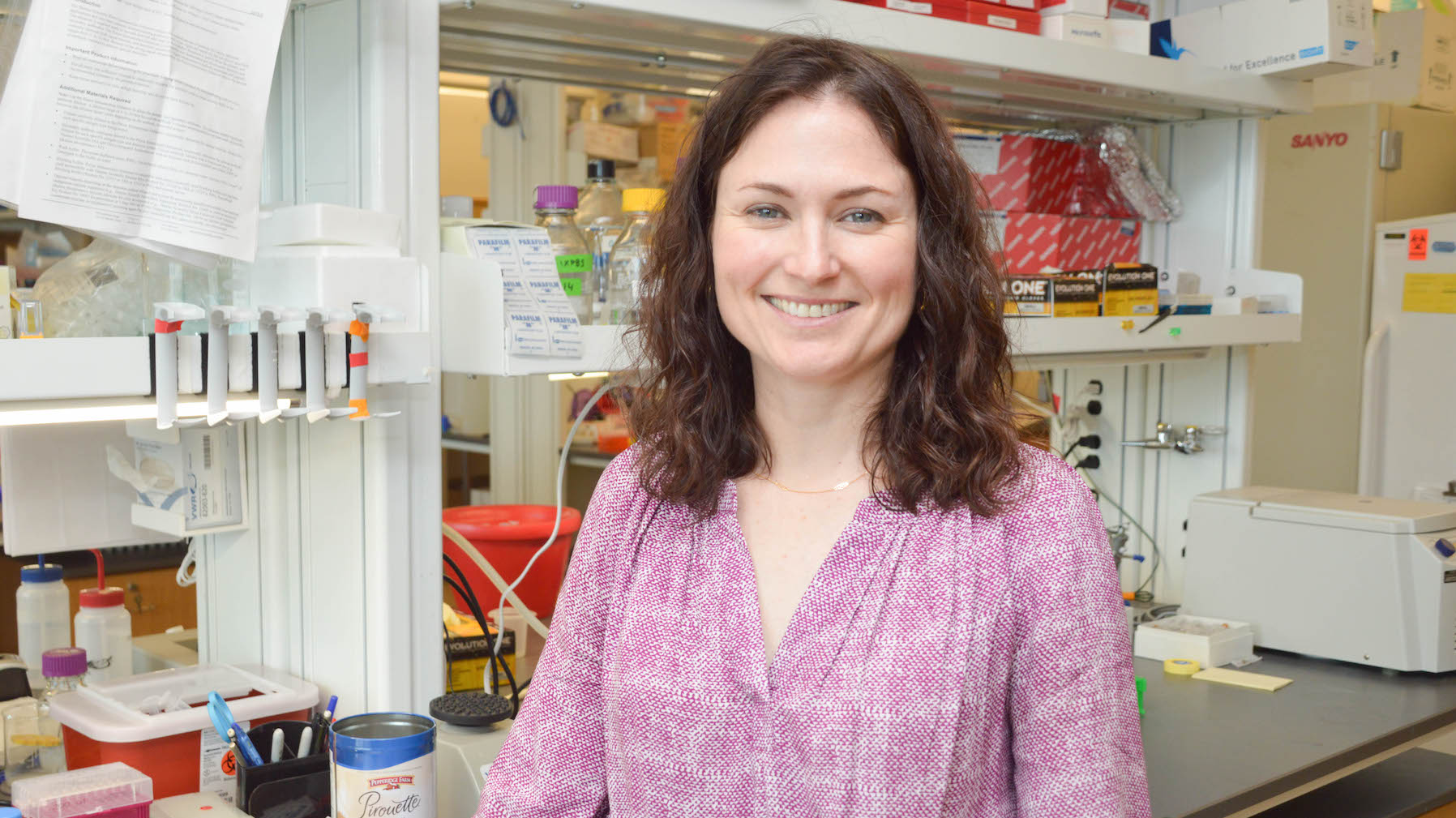The Oklahoma Center for Adult Stem Cell Research (OCASCR) has named OMRF scientist Courtney Griffin, Ph.D., as its new scientific director.
OCASCR was founded in 2010 by the Oklahoma Tobacco Settlement Endowment Trust (TSET) to increase adult stem cell research in Oklahoma. Over the past eight years, OCASCR has funded research projects on diabetes, blindness, cancer and other illnesses at Oklahoma State University, the University of Oklahoma Health Sciences Center, the University of Oklahoma, and OMRF.
Griffin earned her B.A. at Harvard and her Ph.D. in biomedical sciences at the University of California San Francisco. Following postdoctoral training at the University of North Carolina, she joined OMRF in 2008. Her work focuses on genes that regulate blood and lymphatic vessels, work that has implications for heart disease, aneurysms, cancer and toxic drug overdose.
Griffin succeeds OCASCR’s founding scientific director, Paul Kincade, Ph.D., who is retiring. She plans to continue OCASCR’s focus on adult stem cell research and expand the scope of its vision to include work in regenerative medicine.
“Regenerative medicine challenges us to harness stem cell and developmental biology research into discovering new ways of repairing, replacing or rejuvenating disease-damaged organs in the body. We want to open the door to more researchers interested in this growing field of study,” she said.
TSET Interim Executive Director Julie Bisbee said she is excited for the future of OCASCR and the role this research plays in TSET’s overall goal.
“TSET is proud to support this unique collaboration between academic and research institutions to promote cutting-edge scientific discoveries in Oklahoma,” said Bisbee. “Supporting this kind of research that advances treatment for cancer and tobacco-related diseases is fundamental to our mission to improve the health of all Oklahomans.”
Since OCASCR’s founding, TSET has invested $17 million in Oklahoma scientists focused on stem cell research with a return on that investment of more than $90 million in grants as a result of the projects launched through the initiative.



